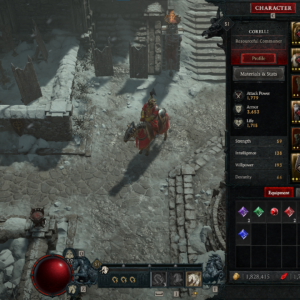
PRINCE ALBERT, SK — Darlene Stonechild is preparing to bring a piece of her family’s history home to her southeastern Saskatchewan First Nation.
Her brother, Dale Stonechild, a prolific artist known primarily for his paintings, is one of the carvers behind a totem pole that has stood for almost 45 years on a bank of the North Saskatchewan River in Prince Albert.
The pole was created and gifted to the city by a group of inmates from Saskatchewan Penitentiary in 1975, but has to be removed because the base is rotting and it’s no longer safe.
Judy MacLeod Campbell, the city’s arts and cultural director, told paNOW that cultural protocols were followed to decide what to do with the damaged pole.
Having been told that the lead carver, James Sutherland, had likely died, and without contact information for his family, the city next consulted with elders and knowledge keepers from the Indigenous community.
It was ultimately decided the pole would be laid to rest near the penitentiary. When Darlene Stonechild learned of that plan, she reached out to McLeod Campbell and told her she’d like to bring the artifact back to the Okanese First Nation on behalf of her brother.
“So we worked together and we worked it out,” Stonechild said. “We can display it in Okanese where his home is. This is his homeland, where his relatives are, and his grandchildren can be proud of something.”
Stonechild talks to her brother, who is in prison in Abbotsford, B.C., regularly over the phone and said he approved the plan.
His sister learned about the history of the landmark from him. During the 1970s, when her brother and Sutherland were incarcerated at Saskatchewan Penitentiary, there was no recreational programming.
“So what the people of (Prince Albert) would do, they would come into the penitentiary and they’d have picnics and barbecues and play football, and soccer and play cards with the inmates,” she said.
The activities were hugely important to the prisoners, she said.
“I think they kept them sane at a time when nobody was there. Their families weren’t there.”
As a symbol of their appreciation, some of the inmates — led by Sutherland with Stonechild as his main assistant — carved the totem pole as a gift to the city.
Stonechild is responsible for much of the painting, including the wings of the thunderbird that crowns the pole.
Darlene Stonechild said her brother was always interested in art, but wasn’t able to use his gifts to their full potential early in life. He and his siblings spent much of their childhood and adolescence attending the Gordon Indian Residential School in Punnichy, Sask.
Stonechild said her brother has struggled with the life-long effects of the physical, sexual and emotional abuse he endured there.
In 2013, he was convicted of manslaughter in the death of a Regina man during an argument when both men had been drinking.
Stonechild, 65, has six years left in his 15-year sentence. Even if he were to be released on parole, it’s unlikely the conditions would allow him to leave B.C., said his sister, so it’s unclear if and when he’ll be able to see the totem pole displayed in his home community.
She is planning to come to Prince Albert to get the pole in September. There is to be a ceremony as it is taken down and it will then be transported by flatbed truck to the Okanese First Nation near Balcarres, about 85 kilometres northeast of Regina.
The Stonechild family and the First Nation will cover the cost of the move.
Stonechild said she wants to emphasize the gratitude she feels towards the city of Prince Albert for letting her take the totem pole and looks forward to displaying it in her yard.
“For myself and my relatives — Dale’s relatives — it’s a lot of pride. It’s his art that’s coming home, a piece of history, his history is coming home.”






